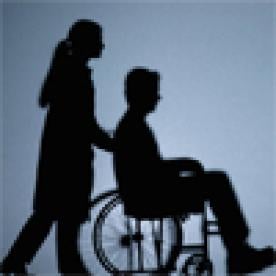On September 16, 2016, the Office of Investigator General for CMS issued a report on hospice election statements, concluding that many of the statements in use by hospices are deficient in some respect. In its review of 565 election statements, OIG concluded that 35 percent were deficient in some manner.
Hospice patients are required to elect the hospice benefit. To confirm that election, hospices must obtain a signed election statement from the patient or authorized representative. The election statement must include language confirming that the patient understands that: (a) she is waiving the right, during the term of the election, to certain Medicare treatment related to the terminal illness; and (b) the hospice benefit is palliative rather than curative.
To date, CMS has declined to issue a required form for this purpose, allowing hospices to construct their own forms.
OIG now has recommended that CMS issue a standard recommended form.
The deficiencies OIG identified were quite varied, including highly technical faults such as the failure to name Medicare as the specific benefit (as opposed to a list including Medicare, Medicaid, or private insurance, as other programs also include the hospice benefit), or inaccurately stating thatall other Medicare benefits were waived during the course of hospice treatment (as opposed to failing to include a waiver at all), or failing to note the exact nature of a patient’s revocation rights.
In fact, given the breadth of categories used by OIG to find fault, and the lack of more specific detail given by OIG, it is not possible to determine what share of the deficient election statements determined were materially deficient as opposed to deficient in a highly technical way.
OIG also did not cite any instance where either: (a) a patient was actually confused as to the nature of the benefit (palliative versus curative); (b) a patient did not understand that traditional Medicare services related to the terminal illness were waived. In short, although OIG found deficiencies, it did not link these deficiencies to any improper expenditure of Medicare funds.
Given OIG’s focus on election statements, it is critical for hospices to review the report and be sure that their election statements:
-
Clearly state that the election constitutes a waiver of traditional Medicare treatment related to the terminal illness during the course of the election;
-
Plainly note that the hospice benefit is palliative not curative;
-
Advise patients of their right to revoke the hospice election at any time;
-
Refer specifically to the Medicare benefit (as opposed to private insurance or Medicaid), as appropriate;
-
Be drafted in a concise and readable fashion.
Given the recommendation for CMS to promulgate model text, providers should watch carefully for the release of such text. Hospices that decline to adopt model text will face further exposure in audits, even though the new model text is not currently intended to be mandatory.
As providers know, Medicare auditors often base payments denials on highly technical grounds, rather than sorting through the complex analysis whether a physician and IDT were objectively wrong in finding eligibility.
While courts have made it clear that payment can only be denied for failure to comply with a “condition of payment” and have reiterated that deference is due to physicians making these complex determinations, this OIG report will likely be used as justification to continue the practice of denying claims for more technical reasons (and hence less expensive to adjudicate). Although such findings are regularly reversed by ALJs, it now takes years to get a hearing before the ALJ panel.
For these reasons, hospices should review their election statements to be sure that they address each point of criticism the OIG has identified in this report.



 i
i

